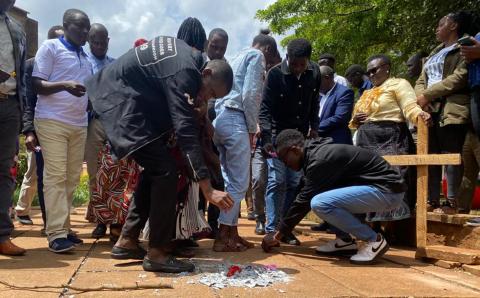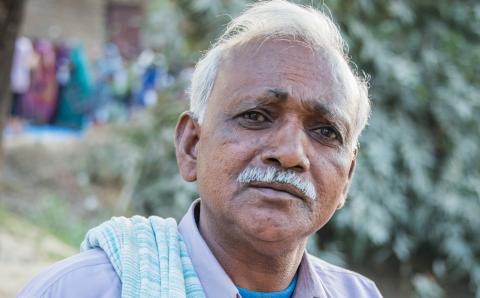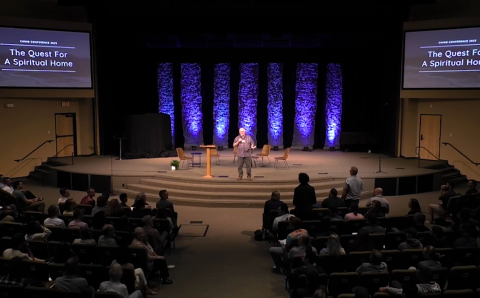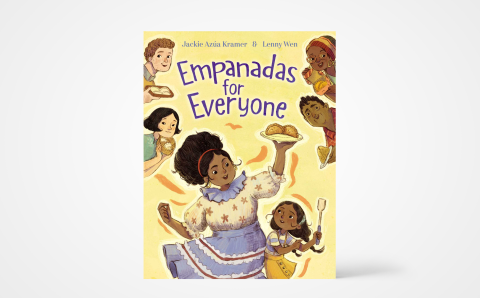I have battled chronic pain my entire life.
Born with cerebral palsy, my body is messed up. My muscles are extremely tight, deformity plagues my right side (particularly my hand and arm), and scoliosis means my back regularly slips out of alignment. It doesn’t help that I am 6-foot-7, making me frequently reach or twist. Arthritis is an unwelcome foe too, especially when I get out of bed in the morning. One medical professional said my body is constantly fighting itself.
I am well acquainted with the medical system. If I could capture the time I have spent driving to appointments and occupying medical offices, it would amaze me how much it adds up. My body has undergone numerous procedures, including three hip surgeries. I have counted loads of ceiling tiles as I lay on my back waiting for a test or surgery. I joke that medical personnel greet me by name at the front door.
My coping mechanisms include stretching exercises, frequent chiropractic visits, formal physical therapy sessions, occasional massage appointments, healthy eating, and taking a boatload of supplements. I figure taking the best care of myself that I can will help my condition and lessen inflammation.
The physical aspect of chronic pain is one obstacle, but the emotional or mental issues go deeper. My mind frequently churns through ways I can gain relief and lessen my pain. Those thoughts don’t ever leave my brain. Also, with each added pain, I wonder if it will become part of a new normal. Fear and worry are a particular challenge.
But how do I respond to chronic pain as a Christian? I have heard numerous sermons and read many articles on temporary trials. The Bible includes several verses about temporary troubles, such as 2 Corinthians 4:17: “For this light momentary affliction is preparing for us an eternal weight of glory beyond all comparison” (ESV). But what happens when you face unending trials such as chronic pain? My consistent pain doesn’t seem “light” or “momentary.”
Honoring God with my pain is not easy, but it is possible. Centering my thoughts on the fact that God allowed this in my life for a purpose helps. I might not know the reason or appreciate it, but God is working all things out for my good, according to Romans 8:28.
My best response is acceptance, knowing that God wants me to experience blessings and joys. Thankfulness and contentment are also key. Am I thankful for the blessings God gives me, such as days when I experience less pain, or am I more focused on the hardships in my life? I confess I need improvement in that area.
Being in my 60s, I often think about heaven. I look forward to it more and more every day because God says suffering will end there. This life’s trouble will be a distant memory. I believe I will have a new body free of the present pain and limitations in this life. No more trips to the chiropractor or to physical therapy. I will be healed. That provides glorious hope.
But while I’m still here, I want to practice faithfulness and esteem God in my pain and suffering. My desire for when life ends is to hear God say, “Well done, good and faithful servant.”
About the Author
Paul Delger is a long time professional writer and inspirational speaker to young people and lives in Kanawha, Iowa.









